Hidden Harms
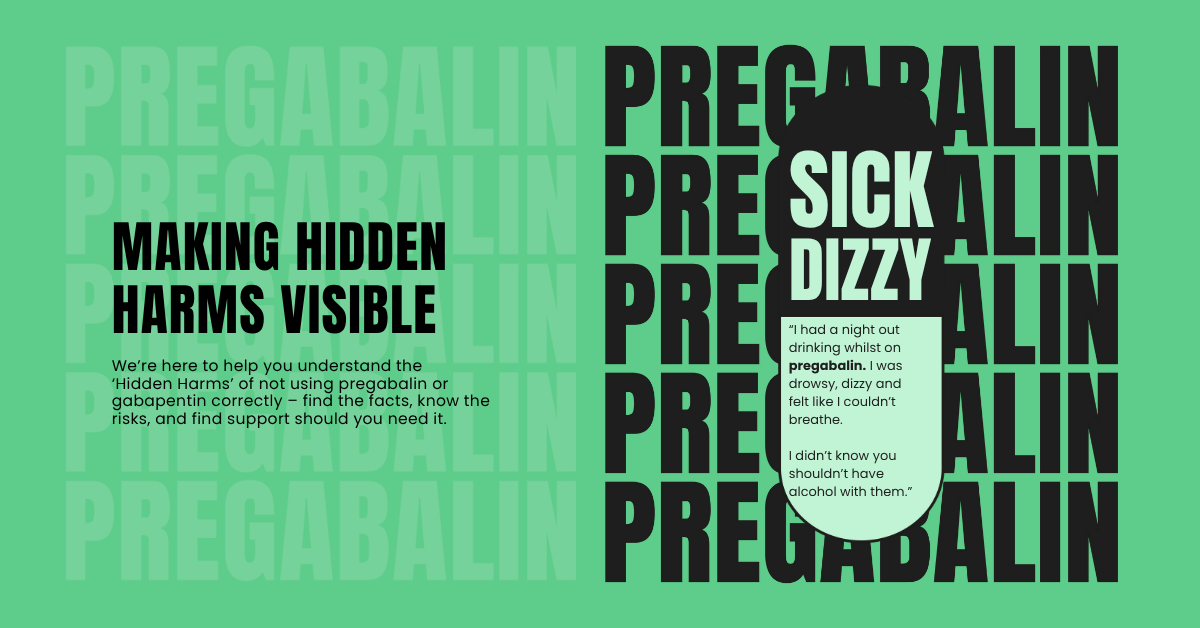
The problem
Pregabalin and gabapentin, known as gabapentinoids, are medicines that are often prescribed to help with conditions like epilepsy, anxiety, and nerve pain.
But sometimes, people take these medicines without a prescription. This can happen for different reasons, such as:
- Self-medication – managing pain or a condition
- To experience a sense of euphoria, or deep relaxation. They are also sometimes used alongside other drugs or alcohol to enhance the effects
- Coping with mental health struggles
Read more about the risks
The risks
The are a number of risks associated with not using gabapentinoids correctly. Some of these include:
- The risk of overdose increases if you take them with alcohol or other drugs.
- You might feel unwell, with side effects like trouble sleeping, feeling dizzy, or feeling sick.
- They can affect your mood, causing anxiety, depression and panic attacks.
The solution
Hidden Harms is a campaign shaped by people who have experiences of using pregabalin or gabapentin, and those who support them.
We found that many people don’t know the risks of taking medicine that wasn’t meant for them, or the risks when mixing with other substances.
Our goal is to share open and honest information, so that people can make informed choices, and reach out for help should they need it – so that they can lead a happier, healthier, harm free life.
How to stay safe
It is important to be aware of the risks of using pregabalin and gabapentin incorrectly.
If you’ve been prescribed pregabalin or gabapentin to help with a health condition, always speak to a professional before making any changes.
Don’t stop taking your medication suddenly, and always follow any safety advice given.
If you’re using pregabalin or gabapentin without a prescription, there are ways to reduce the risks:
- Start low and go slow – begin with a small amount first to see how it affects you.
- Avoid mixing – mixing with other substances such as alcohol or opiates can increase the risk of unpleasant side effects or overdose.
- Always carry naloxone – naloxone doesn’t work on gabapentinoids, but it will help if opioids are involved. You can’t always be sure what’s in what you’re taking.
- Don’t use alone – have someone you trust nearby in case something goes wrong.
- Don’t stop suddenly – if you’ve been using regularly, stopping quickly can cause withdrawal symptoms. You can get help from County Durham Drug and Alcohol Recovery Services for support.
- Keep track – keep an eye on your tolerance, how much you are using and if you experience any withdrawal symptoms.
- In the event of an emergency, call 999.
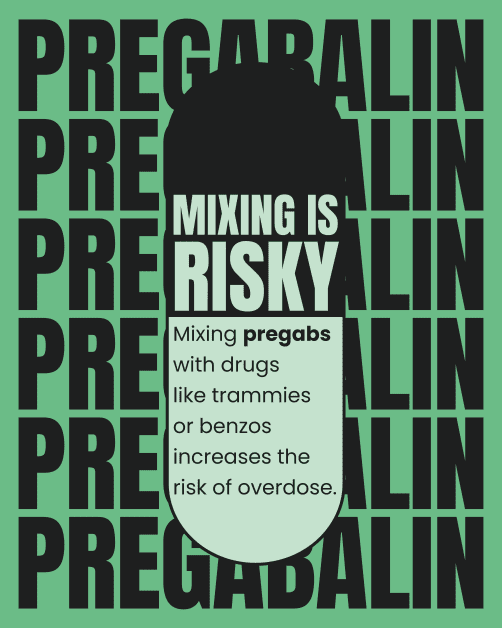
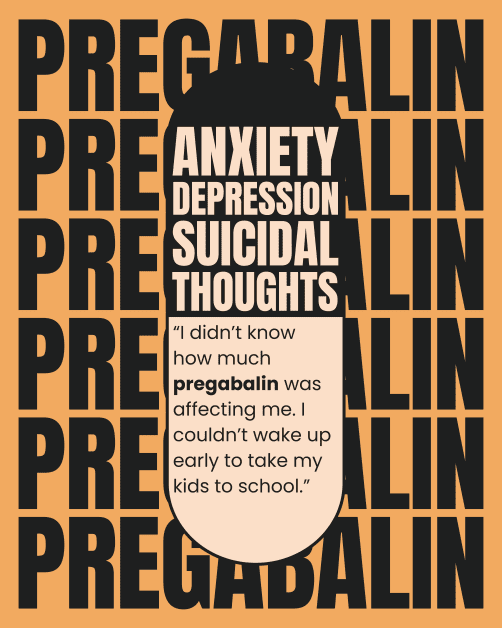
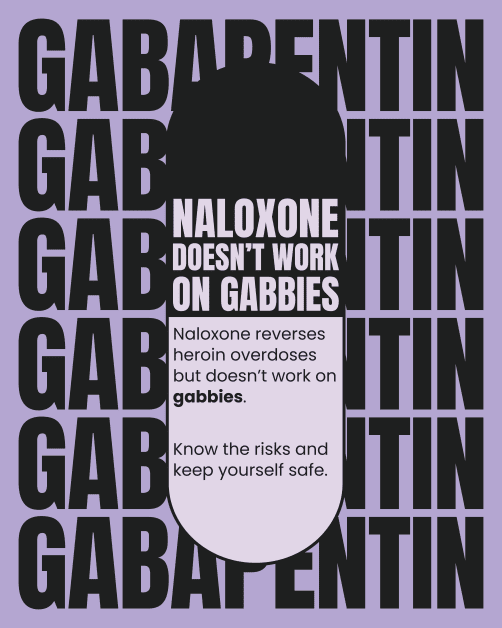
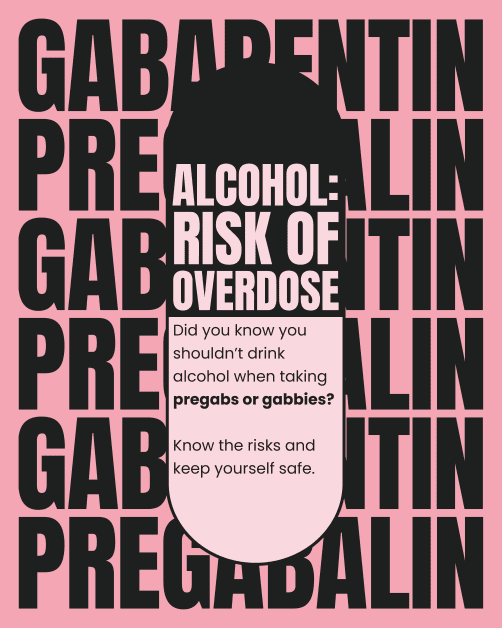
Signposting
If you’ve been given pregabalin or gabapentin to help with a health condition and you’re worried or unsure about anything, it’s important to talk to someone who can help before making any changes.
If you’re using pregabalin or gabapentin without a prescription and feel like you need support, we are here to help.
Call us on 03000 266 666 and choose the option for your nearest centre
Email us at cddars.adult@waythrough.org.uk
Resources
- Visit talktofrank.com to learn more about pregabalin and gabapentin, including the risks
- Check out our Happier, Healthier, Harm Free guide – full of real tips and support from people we’ve worked with, sharing what helped them through their own journeys.
- Download our posters – simple, easy-to-read resources that explain the risks of using gabapentinoids in the wrong way.
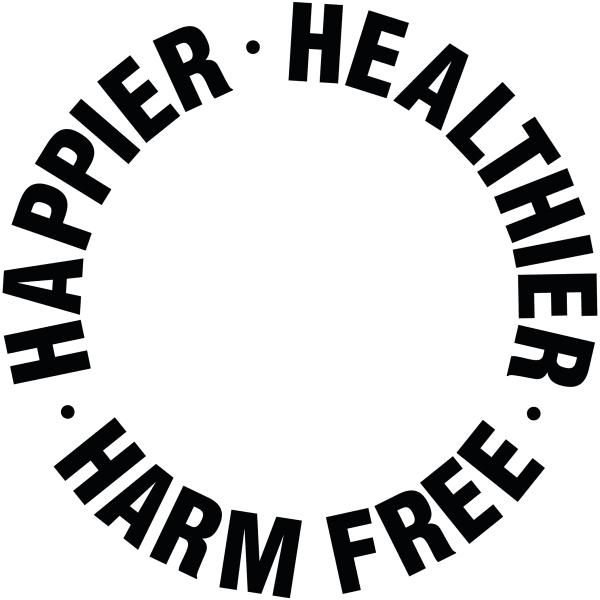
Happier, Healthier, Harm Free
Our campaigns have been developed to help support people to live a happier, healthier, harm free life – whatever this might look like for them.
If you need support with your drug or alcohol use, we offer a free, confidential, non-judgemental service.

Turn it around
Our ‘Turn it around’ campaign has been developed by members of the County Durham Drug and Alcohol Recovery Services.
We want you to know that even when life feels like it has been flipped upside down, we can still turn it around. Together.


